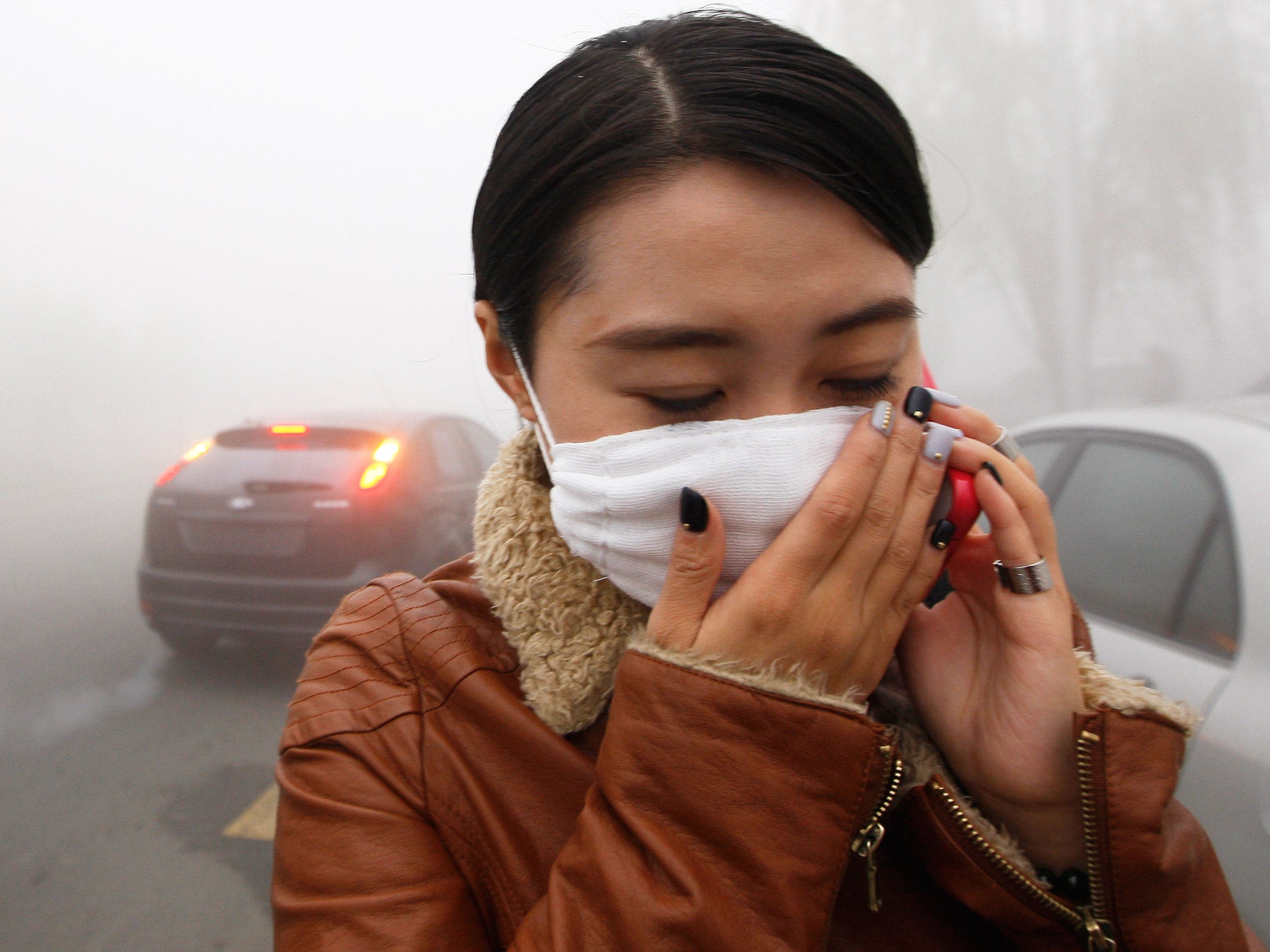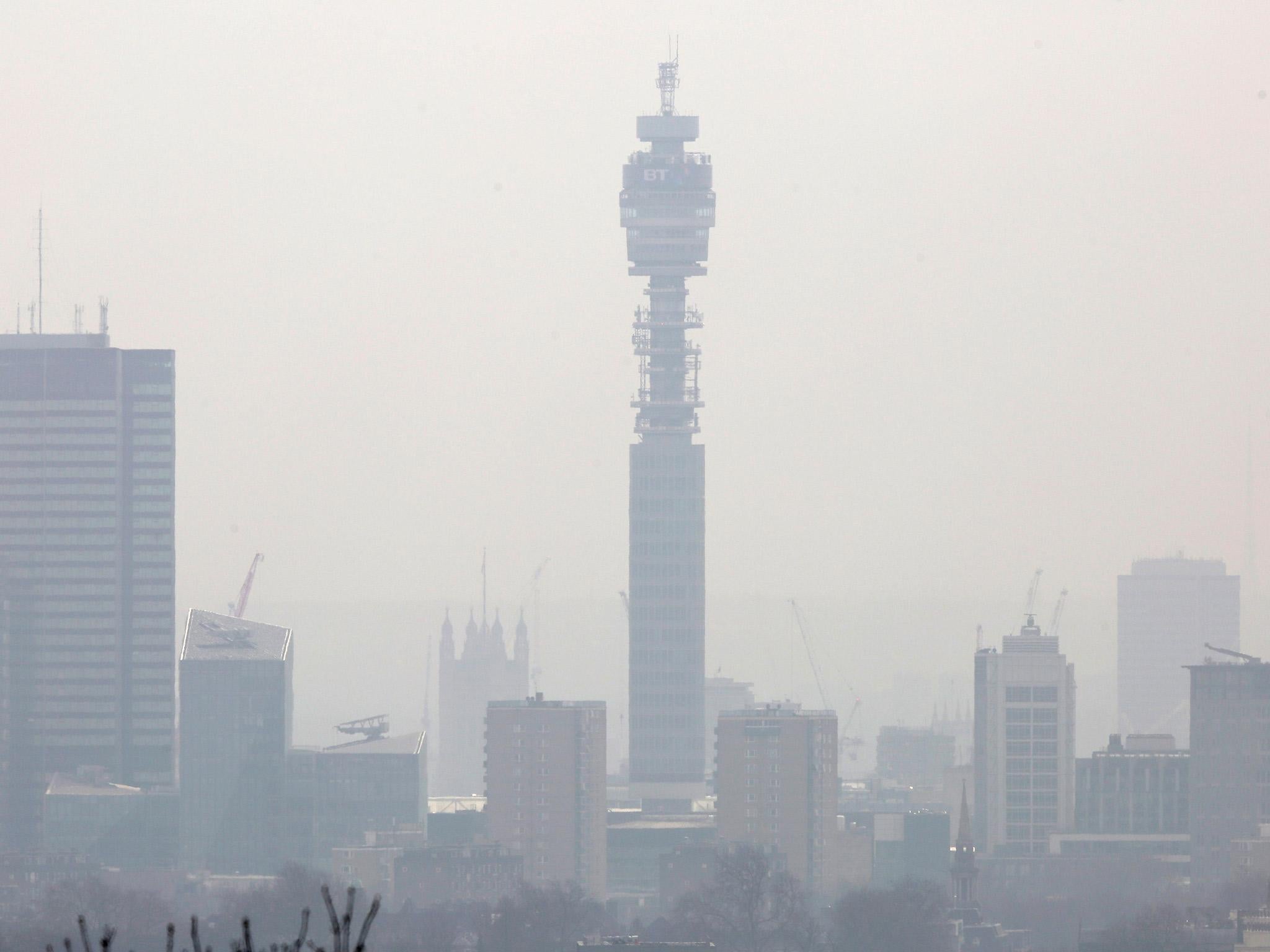Air pollution 'kills 3.3 million a year worldwide'
Scientists say the figure is likely to double by 2050

Your support helps us to tell the story
From reproductive rights to climate change to Big Tech, The Independent is on the ground when the story is developing. Whether it's investigating the financials of Elon Musk's pro-Trump PAC or producing our latest documentary, 'The A Word', which shines a light on the American women fighting for reproductive rights, we know how important it is to parse out the facts from the messaging.
At such a critical moment in US history, we need reporters on the ground. Your donation allows us to keep sending journalists to speak to both sides of the story.
The Independent is trusted by Americans across the entire political spectrum. And unlike many other quality news outlets, we choose not to lock Americans out of our reporting and analysis with paywalls. We believe quality journalism should be available to everyone, paid for by those who can afford it.
Your support makes all the difference.Air pollution from outdoor sources kills about 3.3 million people per year worldwide and the numbers are likely to double by 2050 even if every country imposes existing air-quality legislation, a study has found.
Scientists have estimated that outdoor air quality is leading to millions of premature deaths especially in east and south Asia as a result of emissions of damaging microscopic particles into the air that penetrate deep into the lungs.
Most of the air pollutants in Asia come from the burning of fuel for heating and cooking. The estimates do not include the number of deaths from indoor pollution, estimated to be another 3 million or so each year, the scientists said.

While emissions from heating and cooking are most important in India and China, the greatest impact in the United States is from traffic and power-generation pollution whilst in Europe it is mainly from agricultural emissions due to the use of fertilisers, which produces ammonia, the study found.
The researchers used computer models to estimate the health impacts of a range of outdoor air pollutants such as ozone and tiny particles less than 0.0025mm wide, which are known to cause cardiovascular problems and lung disease, said Jos Lelieveld of the Max Planck Institute for Chemistry in Mainz, Germany, who led the study published in the journal Nature.
“The total number of people who die worldwide together from HIV/Aids and malaria is 2.8 million per year. So that is half a million less than from air pollution, which is a very significant source of premature mortality,” Dr Lelieveld said.
The model predicts that if there is “business as usual” and no significant tightening of pollution laws, the mortality rate from outdoor air pollution could jump to 6.6 million deaths per year by 2050, with most of them occurring in Southeast Asia.
“This means a doubling of the number. If this growth in particulate matter is to be avoided, intensive control measures need to be implemented especially in south and east Asia,” Dr Lelieveld said.
“Our study clearly shows that it’s important to reduce pollution from residential energy use, especially in Asia,” he said.
Some of the most dangerous air pollutants in the UK come from mixing traffic fumes with the agricultural pollutants, which causes reactive particles that can penetrate deep into the lungs, Dr Lelieveld said.
“Much of the particulates in cities like London are actually coming from outside the city,” he said.
Join our commenting forum
Join thought-provoking conversations, follow other Independent readers and see their replies
0Comments